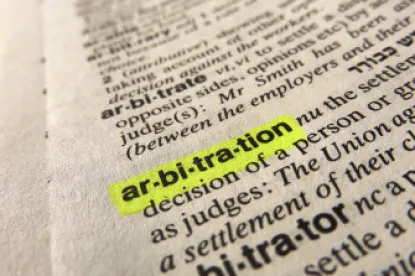In recent years, plaintiffs have taken a variety of approaches to challenging the enforceability of employment arbitration agreements. One common tactic has been to claim that they do not remember signing the at-issue agreement and, therefore, should not be required to arbitrate their claims. And at least one Court in the Second Appellate District has accepted this argument. See, e.g., Gamboa v. Northeast Community Clinic, 72 Cal. App. 5th 158 (2021). A recent decision from the First Appellate District came to a different conclusion.
On January 19, 2023, a California Court of Appeal held that two employees’ alleged failure to remember signing an arbitration agreement was insufficient to challenge the authenticity of their handwritten signatures. See Iyere v. Wise Auto Group. The Court reversed the trial court’s denial of the employer’s motion to compel arbitration on this ground and rejected the trial court’s holding that the at-issue arbitration agreements were unconscionable.
The plaintiffs in Iyere had alleged 25 separate employment-related claims against their former employer. In support of its motion to compel arbitration, the employer produced for each plaintiff a copy of an agreement to arbitrate all employment-related claims, affixed with the plaintiff’s handwritten signature and dated as of the plaintiffs’ respective start dates. In response, the plaintiffs submitted declarations stating that they were given a “stack” of documents on their first day of work and “rushed” to sign them without time to read them. Notably, even though the declarations stated that the plaintiffs did not recall signing the arbitration agreements, they also stated that the plaintiffs did indeed sign and return the documents they were given their first day.
The Court of Appeal found that the plaintiffs had not successfully met their burden to produce admissible evidence that the signatures were not theirs. Because their declarations indeed stated that they had signed the “stack” of documents—and did not deny that this stack included the arbitration agreements—the Court held that the plaintiffs had failed to deny that their signatures on the arbitration agreements were authentic. Furthermore, even though the plaintiffs claimed that they did not recall signing the agreements, the Court found that not remembering signing an agreement still could be consistent with having, in fact, signed.
The Court emphasized that a handwritten signature (like those at issue) is more easily authenticated than an electronic signature. Because an individual typically can recognize their own handwritten signature, that individual’s mere failure to remember signing a particular document does not create a factual dispute as to the signature’s authenticity so long as they do not deny that a handwritten signature is their own.
The Court of Appeal likewise rejected the plaintiffs’ additional arguments regarding procedural and substantive unconscionability. The plaintiffs argued, among other things, that the agreement was substantively unconscionable because it was governed by the Federal Arbitration Act (the “FAA”) and thus violated section 925 of the California Labor Code (“Section 925”), which prohibits employers from requiring California employees to waive the substantive protections of California law as a condition of employment. However, the Court found that Section 925 does not preclude application of the FAA, because the FAA does not prescribe substantive rules for arbitration.
This opinion will no doubt prove helpful to employers who are seeking to compel valid signed arbitration agreements. In light of this ruling, employers should consider whether to obtain handwritten signatures in lieu of electronic signatures to cut off any attempts by plaintiffs to avoid their arbitration agreements by claiming to not remember signing them.





 />i
/>i
